Lights, camera, action for African film festival organizers in Berlin
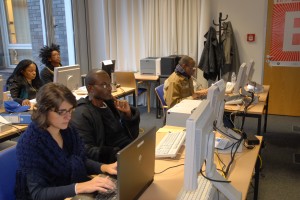 For the ninth year in a row, DW-AKADEMIE is conducting a special film festival and event management training in cooperation with the annual Berlin International Film Festival, Berlinale. And, the last few weeks have been action-packed for the participants in Berlin during the festival.
For the ninth year in a row, DW-AKADEMIE is conducting a special film festival and event management training in cooperation with the annual Berlin International Film Festival, Berlinale. And, the last few weeks have been action-packed for the participants in Berlin during the festival.
The workshop is specifically designed for managers and organizers of film festivals in Africa, Asia and Latin America. Every year it’s a red-carpet intensive training to discuss festival planning, marketing strategies, and ideas to boost the genre of local film-making in developing regions and networking in the name of cinematic impact.
![]() read more
read more
Lights, camera, action for Asian film festival organizers in Berlin
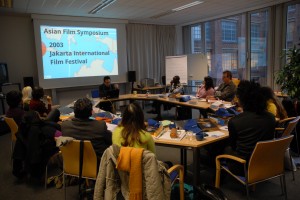 The last several weeks have been action-packed for the participants of the film festival and event management workshop taking place in Berlin. For the 9th year in a row, DW Akademie has conducted this special training event in cooperation with the annual Berlin International Film Festival, also known as the Berlinale. The workshop is for managers and organizers of film festivals in Asia, Africa and Latin America.
The last several weeks have been action-packed for the participants of the film festival and event management workshop taking place in Berlin. For the 9th year in a row, DW Akademie has conducted this special training event in cooperation with the annual Berlin International Film Festival, also known as the Berlinale. The workshop is for managers and organizers of film festivals in Asia, Africa and Latin America.
Every year it’s a red-carpet intensive to discuss festival planning and marketing strategies, boost the genre of local film-making in developing regions and network in the name of cinematic impact. “The workshop is a great gathering of 12 different cultures from three different continents,” says project manager Pamela Schobess. “It’s all about networking and we’ve had an amazing start, making contacts between festivals all over the world.”
![]() read more
read more
East4South: Communication, coordination and cameras
As you may have read in earlier posts East4South is a unique journalism project that enables African journalists to research and produce stories with journalists from Eastern European countries.
Ten African journalists recently teamed up with ten Eastern European journalists for the third cycle of the East4South. The European journalists travelled through the home country of their African partner to research stories. Then together they produce their stories at the DW Akademie in Bonn.
The latest group brought back materials to produce a diverse range of stories from milk farming in South Africa, the struggles of Congolese female politicians to the glitz of Nigeria’s Nollywood, the world’s second largest film-making industry.
![]() read more
read more
Training to investigate West Africa’s mining sector
Three DW-AKADEMIE trainers recently travelled to the Liberian capital, Monrovia, to conduct an investigative reporting workshop on extractive industries. Funded by the German development agency, GIZ, the two-week workshop was attended by 12 print, radio and TV journalists from Sierra Leone and Liberia.
Africa’s vast mineral wealth has often been a curse, feeding graft, ethnic tensions and civil unrest.
In Sierra Leone and Liberia diamonds and gold fuelled brutal civil wars that killed tens of thousands of people and completely destroyed the economies of both countries.
Nearly a decade after the end of these wars, international mining companies are showing huge interest in Liberia and Sierra Leone. Managed wisely, mineral development could offer the two nations a chance to rebuild.
Both countries desperately need the revenue. With average incomes less than US$1 a day, Sierra Leone and Liberia are among the poorest nations in the world, ranking respectively 180 and 182 out of 187 countries in the United Nations Human Development Index.
For mining to be of benefit though, transparency is essential – starting from the bidding process to the awarding of concessions, the signing of contracts and the payment of royalties and taxes. In addition, the social and environmental impacts of exploration and mining activities need to be closely monitored – a vital role for journalists in both countries.
![]() read more
read more
Creating confidence in the classroom
Active acquisition of knowledge to solve concrete challenges creates confidence. And that’s something you need when you have to teach journalism to a classroom full of young Laotian twentysomethings, as do the instructors at the National University of Laos (NUOL).
These instructors are currently students themselves: they’re taking part in journalism teachers’ training and coaching, which is organized in partnership with DW-AKADEMIE’s Asia team.
At a workshop in December we reviewed some of the progress made so far. “I have more confidence in teaching these subjects now,” said one of the younger colleagues. Others agreed.
One senior lecturer brought along a revamped version of a project the training participants had created the previous September – a newspaper made from scratch. It was a showcase item at NUOL’s 15th anniversary celebration in November.
The instructors-in-training had put tremendous effort into producing it, and that has really paid off in their daily work. Here’s why:
![]() read more
read more
Getting everyone up to speed in a converged Himalayan newsroom
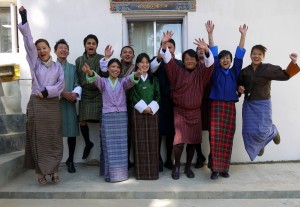 Even high in the Himalayas, reporters these days are being asked to do more.
Even high in the Himalayas, reporters these days are being asked to do more.
As part of a modernization drive, Bhutan Broadcasting Service (BBS) has combined their radio and television newsrooms. In the future, reporters will be required to provide news reports in both media. It’s hoped that the convergence will allow the state-funded station to cut costs and do more with limited resources.
It was against this background that two DW-AKADEMIE trainers went to Bhutan’s high-altitude capital Thimphu to conduct a workshop with an enthusiastic group of 12 young BBS journalists. While several already had some radio production experience, many had previously only worked on the TV side of things.
Together, the group started with a review of the basics, such as news judgment and news writing for radio, before moving on to the interview and how to ask that all-important first question that will grab your listeners and keep them from turning the dial.
![]() read more
read more
Histoires Africaines – tournages à Bamako
Il est minuit. Avec un soupir de soulagement Kadidia Haїdara et Ramata Konaté s’assoient. Elles posent la caméra, ferment l’ordinateur. C’est fait. Le dernier commentaire enregistré, leur reportage est enfin terminé. Avec les dix autres collègues venant du Mali, du Burkina Faso et du Niger, Kadidia et Ramata ont beaucoup travaillé ces derniers jours durant l’atelier “Histoires Africaines” à Bamako. Ils se sont tous beaucoup engagés lors du tournage, ils ont discuté vivement le choix des images au moment de montage et ont méticuleusement choisi chaque mot du commentaire.
![]() read more
read more
African Stories: different countries but facing similar challenges
I think for any trainer it’s very satisfying after two weeks of intensive television production training to see on the last day, participants proudly holding in their hands the DVD featuring the TV stories they had produced during the course. But most importantly for participants, they’re returning to their home stations from the African Stories workshop in Kampala with feature stories ready for broadcast and motivated to put new storytelling skills into practice.
![]() read more
read more
Reporting changing climate from an African perspective
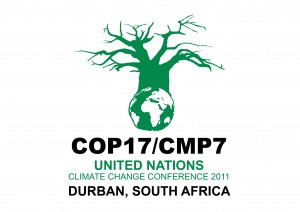 From desertification in the north to floods in the south, from famine to the spread of malaria: Africa is a continent already heavily affected by phenomena attributed to climate change. Yet Africa’s contribution to greenhouse gas emissions driving the process is minimal and the discussion around climate change is often focused on industrialized countries.
From desertification in the north to floods in the south, from famine to the spread of malaria: Africa is a continent already heavily affected by phenomena attributed to climate change. Yet Africa’s contribution to greenhouse gas emissions driving the process is minimal and the discussion around climate change is often focused on industrialized countries.
At the United Nations Climate
Change Conference (COP17) starting in Durban on November 28, DW-AKADEMIE will be supporting radio journalists to offer an African perspective on climate change for their local listeners.
The two-week workshop Reporting Climate Change will bring together journalists from eight countries: Ethiopia, Ghana, Kenya, Mozambique, Namibia, Nigeria, Tanzania and Zambia. The participants are experienced radio reporters who have taken part in previous DW-AKADEMIE courses. From Durban they will produce news reports on the latest developments at the conference and provide detailed background information on the topic of climate change.
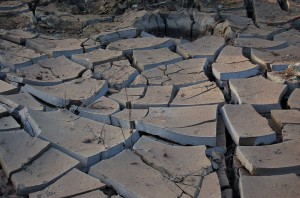 Working closely with the Heinrich Böll Foundation, Bush Radio from Cape Town and the United Nations Framework Convention on Climate Change (UNFCCC), the Reporting Climate Change workshop intends to give the journalists a head start on their research. Plans include a visit to a project site of the Clean Development Mechanism (CDM), a meeting with delegates from African countries and participation in panel discussions with experts of the UNFCCC.
Working closely with the Heinrich Böll Foundation, Bush Radio from Cape Town and the United Nations Framework Convention on Climate Change (UNFCCC), the Reporting Climate Change workshop intends to give the journalists a head start on their research. Plans include a visit to a project site of the Clean Development Mechanism (CDM), a meeting with delegates from African countries and participation in panel discussions with experts of the UNFCCC.
DW-AKADEMIE project managers Aarni Kuoppamäki and Marc Seidel will be in Durban to lead the workshop and reports from participants will be featured on our blog in December.
(Photo credit: Flickr user Matt and Kim Rudge, some rights reserved)
Getting ready for the Young Media Summit in Tunis!
If you’ve been checking out our Facebook page you would of course know that the Young Media Summit in Tunis is coming up later this month: 28 – 30 November.
DW-AKADEMIE in cooperation with Kalima and Nawaat have invited 30 young bloggers from Tunisia, Marocco, Algeria, Libya, Mauritania and Germany to discuss the political situation in the region, the role of bloggers and social media, and the quality standards of online-reporting.
We are very much looking forward to hearing directly from bloggers in Tunisia and Libya about their experiences during the uprisings in their countries.
The Young Media Summit will also cover: ethics in new media, safety and security of bloggers in times of crisis as well as project funding for citizen media.
To find out more about our participants, keep checking the YMS Facebook page, the YMS Twitter feed and of course here on our blog to follow the events at the conference.




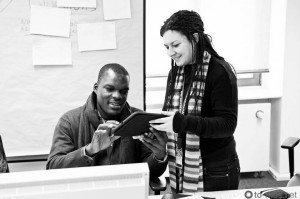
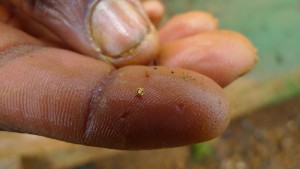
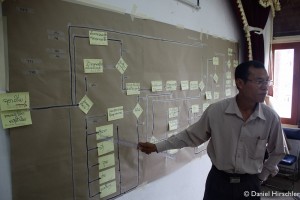
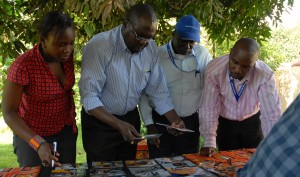
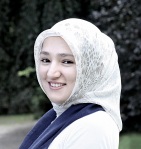




Feedback